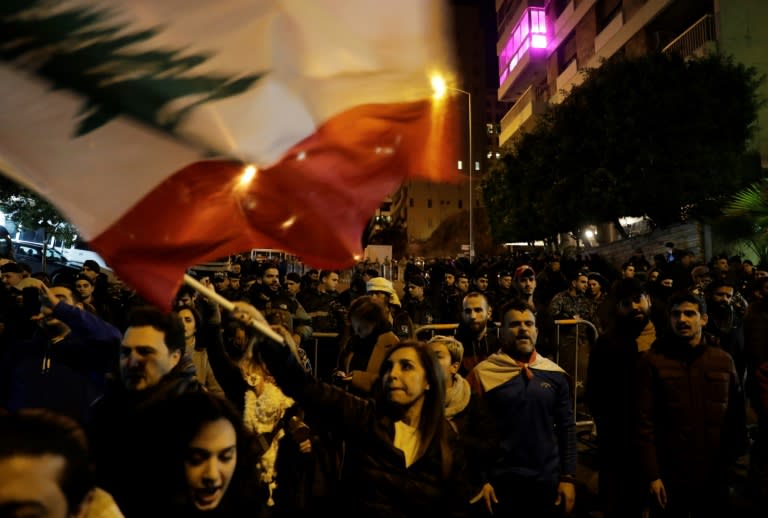
by middleeasteye.net — Protesters gathered outside the Beirut home of Lebanon’s new prime minister on Saturday, calling for Hassan Diab’s resignation less than 10 days after he was appointed. Lebanon is without a cabinet and in the grips of a deepening economic crisis after a two-month-old protest movement forced Saad Hariri to stand down as prime minister on 29 October. Anti-government protests continued after Hariri’s resignation, while political parties negotiated for weeks before nominating Diab, a professor and former education minister, to replace him on 19 December, AFP said.
Echoing protester demands, Diab promised to form a government of independent experts within six weeks – in a country where appointing a cabinet can take months. But protesters on Saturday were unconvinced by his promise. “We’re here to bring down Hassan Diab. He doesn’t represent us. He’s one of them,” said one young demonstrator, referring to the country’s ruling elite, who protesters despise collectively. Lina, another protester agreed, saying: “It’s the revolution that must name the prime minister, not them.” The 60-year-old Diab, who has a low public profile and styles himself as a technocrat, last week called protester demands legitimate but asked them to give him a chance to form “an exceptional government”. “We are willing to give him a chance, but let us at least give him a roadmap,” Lina told AFP. The protests and political deadlock have brought Lebanon to its worst economic crisis since the 1975-1990 civil war. The international community has urged a new cabinet be formed swiftly to implement economic reforms and unlock international aid. Lebanon urgently needs a new government to pull it out of the long-brewing crisis. Foreign donors say they will only help after there is a cabinet that can enact reforms, Reuters reported. Lebanon is grappling with its worst economic crisis in decades and battered confidence in its banking system. The risk of devaluation has risen in a country with one of the world’s biggest foreign debt burdens.
Foreign debt burden
The Lebanese pound has weakened by more than 30 percent on the parallel market, now the main source of cash. Banks have imposed tight controls, and the hard currency squeeze has driven importers to hike prices. Protesters decry Diab’s participation as a minister in a government deemed corrupt. The support given to him by powerful Shia movement Hezbollah also angers many protesters and pro-Hariri Sunnis.



